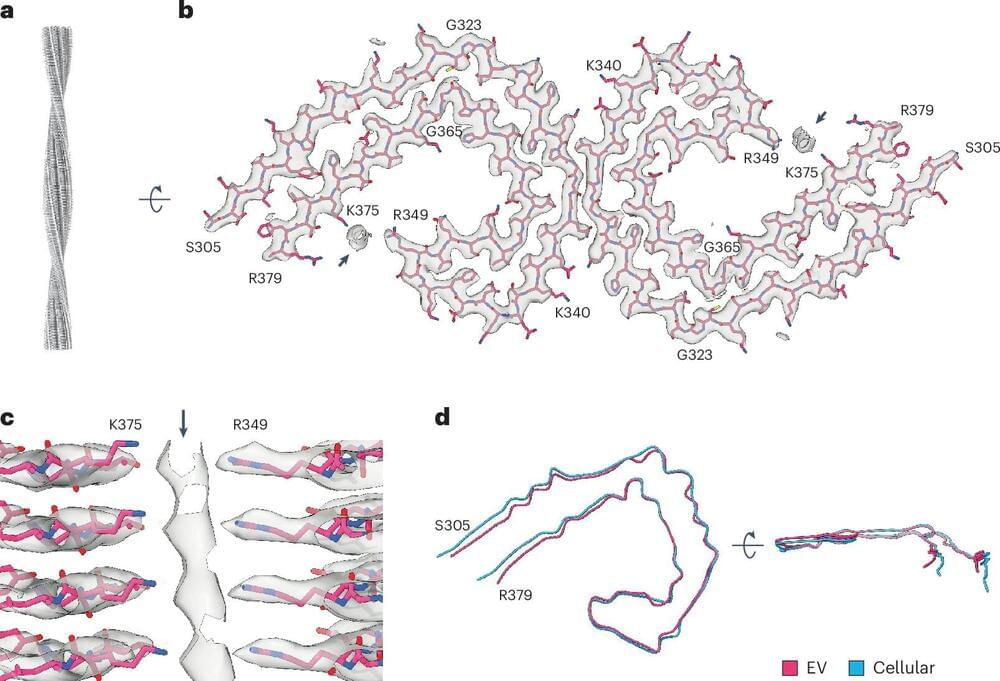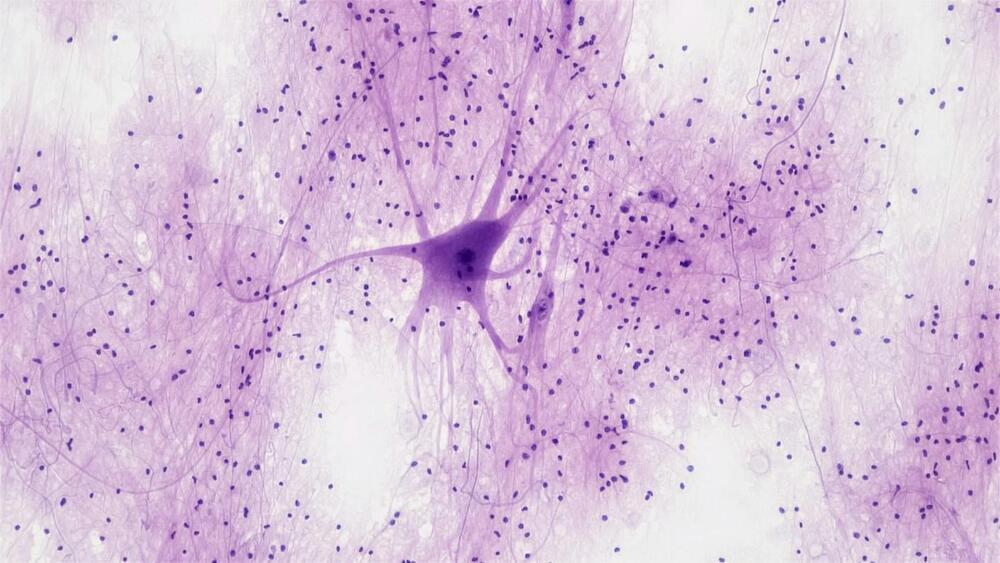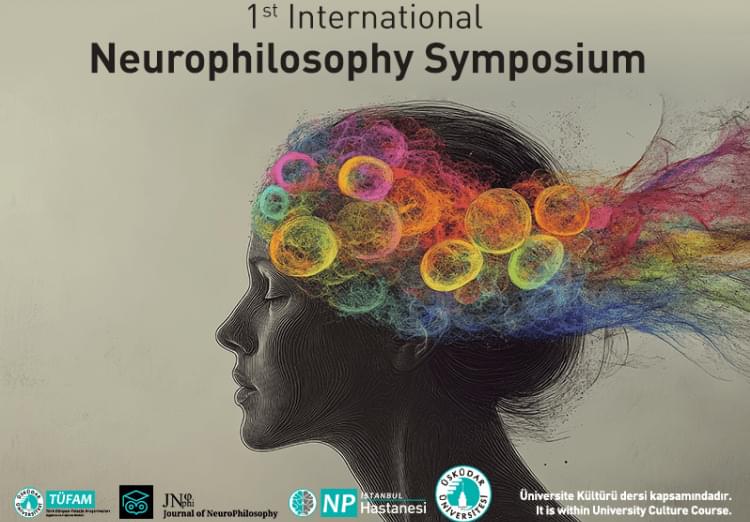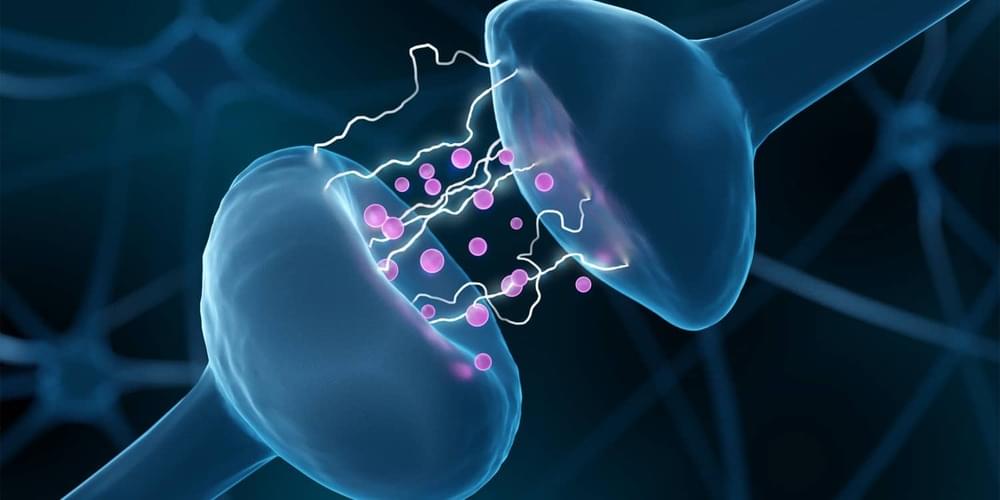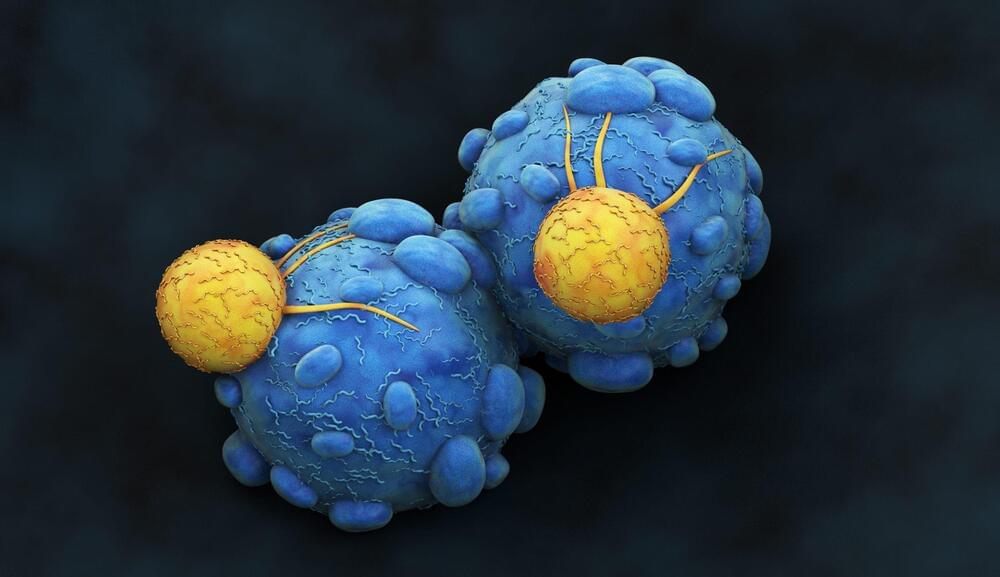Dec 23, 2024
Study explores association between Tau filaments and extracellular vesicles in Alzheimer’s disease
Posted by Dan Kummer in categories: biotech/medical, neuroscience
Alzheimer’s disease (AD) is a debilitating neurodegenerative disorder associated with a progressive decline in memory and mental abilities, which can significantly hinder people’s ability to complete daily tasks. Past studies found that patients diagnosed with AD, as well as some other neurodegenerative disorders, exhibit an abnormal accumulation of tau protein in their neurons.
Tau protein is a microtubule-associated protein (MAP) known to stabilize the internal structure of neurons, binding to microtubules. These are microscopic tubular structures that support the transport of nutrients, proteins and other vital molecules within individual neurons or other cells.
Recent findings suggest that tau proteins interact with extracellular vesicles (EVs), small membrane-bound particles secreted by cells that carry molecules and deliver them to other cells. While the research hints at a connection between these vesicles and tau proteins in AD, the link between the two is not yet fully understood.
